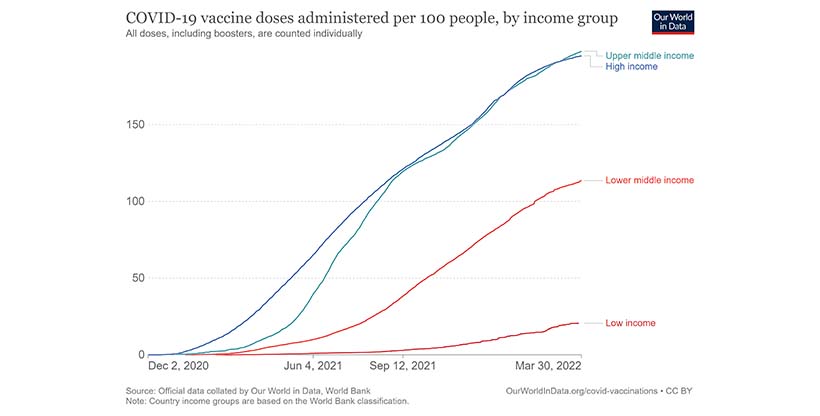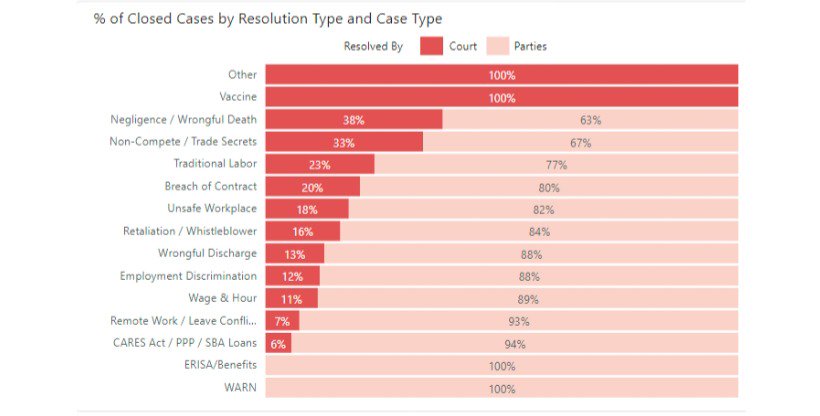Organizations
Employer Liabilities for COVID Vaccines: Duty of Care & Issues to Consider

The consequences of COVID-19 have been felt at every level of society since March 2022. But employers have been dealing with unique complications throughout the pandemic. Now that a vaccine has become available, additional considerations have come into play for employers regarding duty of care and liability.
As an employer, you may be wondering what’s best for your employees, as well as how to protect yourself legally in this unfamiliar territory. This article will familiarize you with the issues around employee vaccinations and duty of care. It will also provide some guidance and resources you may find useful.
Employer FAQs About Duty of Care and COVID Vaccine Liabilities
Here are some FAQs employers have been asking, as well as some thoughts on these issues from legal, medical, and insurance experts.
Is it Legal to Require My Employees to Get Vaccinated Before Returning to the Office?
Yes. The Equal Employment Opportunity Commission (EEOC) stated on December 16, 2020 that employers may require their employees to be vaccinated prior to returning to the office.
If you’d rather not put a strict vaccination mandate on your employees, however, there are other options, such as employee incentive programs.
“Handing out bonus payments, gift cards, or providing an extra vacation day could all incentivize vaccinations without a harsh stance.”
Danielle Crane, an associate at the Kegler Brown law firm
Are There Any Exemptions from the EEOC’s Guidance on Mandatory Vaccinations?
There are two primary exemptions to a vaccine mandate for employees.
- The first category is employees who object to being vaccinated as a result of sincerely held spiritual or religious beliefs.
- The second group is employees who have an illness or medical condition which puts them at heightened risk of an adverse reaction to the vaccine.
- If one or more of my employees object to being vaccinated for religious or medical condition reasons, what can I do?
Duty of Care in Times of Coronavirus
Under the Americans With Disabilities Act, part of your duty of care obligation involves providing a reasonable accommodation to such employees.
“For these employees, you will have to engage in the interactive process to identify a reasonable accommodation, which could differ depending on the circumstances,” said Crane. “But you might consider things like remote work or a continued mask mandate as an alternative until the pandemic is over.”
It’s important to note that a “reasonable accommodation” request from an employee may only be denied if fulfilling it constitutes an undue hardship to the business. “Be aware that fear, discomfort, or general (non-religious) opposition to vaccines will not qualify an employee for an exception,” said Crane.
For employees who fall into the category of “general discomfort,” it may help them to know that the vaccine is quite safe.
“Adverse reactions to the COVID-19 vaccines are extremely rare. Tens of millions of people have been vaccinated in the United States and elsewhere, and severe adverse reactions are decidedly rare.”
Amesh Adalja, MD, a senior scholar at the Johns Hopkins Center for Health Security
As an employer, you need to strike a balance between being accommodating to genuinely voiced objections while also maintaining reasonable standards for your workforce.

Share of people by country who received at least one dose of COVID-19 vaccine. Source: Our World in Data
Do I Have to Pay for the Costs Associated with Vaccinating My Employees?
Yes. Under the CARES Act, employers are responsible for covering 100% of the costs associated with vaccinating their employees. However, the federal government is providing vaccines free of charge to U.S. citizens, so costs arising from employee vaccinations should be minimal, if they arise at all.
Another point to be mindful of here: the vaccine may not remain effective.
“Even in the absence of variants to COVID-19, the vaccine probably does not confer permanent immunity. The length of protection after two doses of the mRNA vaccine is likely in excess of six months. We’ll know more as the persons in the vaccine trial are followed for a longer period.”
Stanley H. Weiss, MD, a professor and epidemiologist at Rutgers New Jersey Medical School
It’s worth at least being aware of the possibility that two doses of the vaccine may not permanently protect your employees or resolve the workplace difficulties arising from COVID-19. So, if you do happen to incur costs of any kind while vaccinating your employees, you may wish to factor those considerations into your budget for a second round of shots going forward.
Are Employment Related Lawsuits Becoming More Frequent?
Yes. According to the COVID-19 litigation tracker by Fisher Phillips law firm, there have been 1,717 virus- related lawsuits filed by employees against employers in the United States since January 30, 2020. That number is expected to continue climbing in the months to come.
“So much has changed over the last years, making it critically important to understand your exposure to emerging risks. Do you have adequate and appropriate coverage for employment practices liability and business interruption? Specifically, are you exposed to COVID-related exclusions? Who do you ask for advice on these issues?”
Chief Growth Officer, Clements Worldwide

Tips for Returning to Work and Minimizing Liability
Given the number of lawsuits with COVID-19 and employment at their root, you’re probably wondering what steps you can take to be as safe as possible from a legal standpoint when your employees get vaccinated and return to work.
Here are a few quick tips you may find useful throughout the process.

Maintain Strict Employee Confidentiality
Employee confidentiality is of the highest importance, especially in these unusual times. Employees who object to being vaccinated on medical or religious grounds may very well confide personal information to you while stating their case.
Any infringement of employee confidentiality carries the strong likelihood of a lawsuit.
Consider Any Union Bargaining Agreements You Have in Place
If your workers are unionized, be sure to carefully review the documentation for any relevant bargaining agreements.
As you’d expect, breaching a legally binding contract with your union—even unknowingly—could very well result in a costly and complex suit being brought against you.
Review Your State’s Workers Compensation Laws and Employer Insurance Policy
Bear in mind that any adverse physical reaction arising from an employer- mandated vaccination could result in a workers compensation claim being filed. Be sure to read applicable workers compensation laws and review your employer insurance policy thoroughly.
A few points about adverse reactions arising from the COVID-19 vaccine are also worth noting
“Most reactions are limited. Up to about 80 percent of those who receive the shot will have pain at the injection site for one to three days. The severe reaction of anaphylaxis is uncommon. Given the protection afforded against hospitalization and death, the benefit to risk ratio is very high.”
Dr. Weiss
Overall, even though there is a minimal degree of risk, the benefits of vaccinating your employees most likely outweigh the costs.
Handling Employer Liability Around the Vaccine
Employers have faced unique challenges since the outbreak of COVID-19, and that’s especially true now that a vaccine has entered the picture.
COVID-19 has changed our world significantly and you should not be navigating alone. Too many insurance providers sell a policy and disappear until renewal. Instead, you deserve a trusted advisor; someone who understands your risk and provides strategic advice. In other words, someone to call when you have a question, who delivers expertise and value beyond your policy.
Have Any Questions or Concerns About How to Protect Your Business?
Contact us for a free consultation with a commercial insurance expert who can explain the risks your business may face and how you can address and mitigate potential issues.
Clements Worldwide can keep you protected from an employee lawsuit or an interruption in your business with solutions ranging from Combined Liability Coverage, Business Interruption Insurance, Group Health, and other international business insurance solutions tailored to your unique needs.